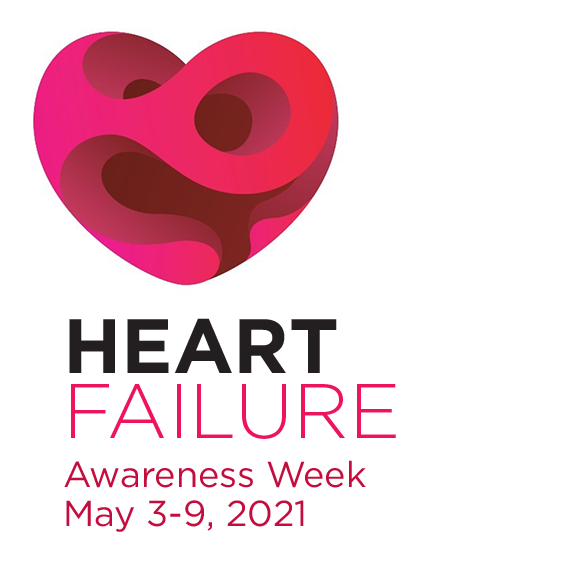Heart Failure Awareness Week: May 3-9
by Communications & Engagement
 Thunder Bay Regional Health Sciences Centre (TBRHSC) hosts programs that support heart failure patients including the Telehomecare Congestive Heart Failure Program and Cardiac Rehabilitation.
Thunder Bay Regional Health Sciences Centre (TBRHSC) hosts programs that support heart failure patients including the Telehomecare Congestive Heart Failure Program and Cardiac Rehabilitation.As the impact of heart failure (HF) continues to grow across Canada and throughout the world, it is becoming increasingly important in raising awareness among patients and their families. With the aim to improve the quality of life for people living with HF, this year’s campaign will focus on self-management and self-care in a virtual world. Thunder Bay Regional Health Sciences Centre (TBRHSC) hosts programs that support heart failure patients including the Telehomecare Congestive Heart Failure Program and Cardiac Rehabilitation.
What is heart failure?
Heart failure is a complex syndrome which occurs when the heart is unable to pump enough blood to meet the needs of the body. Common symptoms include shortness of breath, leg swelling and fatigue. There are many reasons why someone may develop heart failure. The most common causes of heart failure include coronary artery disease and high blood pressure.
Self-care in a virtual world: What you need to know about self-managing heart failure
Did you know that heart failure is on the rise? In Canada there are over 600,000 people living with heart failure which affects people of all ages. Over 90,000 people are diagnosed with heart failure each year in Canada. Surprisingly, many people do not understand heart failure. More than 1 in 4 Canadians do not know what heart failure is, and almost half incorrectly think it can be cured. It is more important then ever to be responsible for your own care. There is a lot you can do to live well with heart failure.
What you can do to promote self-care and self-management
- Monitor your symptoms and report any change to your health care provider
- Reduce salt in your diet
- Increase your daily activity
- Seek peer support
- Keep your blood pressure low
- Follow up with your physician
- Stop smoking
- Take your medications as prescribed
Work with your health care team to learn if you are at risk of heart failure. Ask what you can do to help prevent this condition from worsening.
Self-management is team effort
Even though heart failure cannot be cured, there are treatments that can help people feel better and live longer. They often need help from a number of health care providers, family members, and they also need to be active partners in their care. Together you can build a plan that supports your needs and goals.
Become an active partner in your virtual care
- People living with heart failure need to pay extra attention to their salt and fluid intake, eat a healthy diet, stay active, take their medication as prescribed, and be smoke free.
- Learn about your symptoms of heart failure – they may not be the same as someone else with heart failure. Ask your health care team what you can do to help prevent your heart failure symptoms from getting worse.
- Be patient with yourself – learning to live with heart failure takes time. Share your feelings and talk about your concerns with your health care team.
- Join support groups and share your experience. Talking with your peers can help relieve some of the stress, pressure, and anxiety.
For more information and a guide to virtual health care sessions visit: heartandstroke.ca
For more information on TBRHSC programs, visit: https://tbrhsc.net/programs-services/chronic-disease-prevention-and-management-program/telehomecare-heart-failure-program/
and https://tbrhsc.net/programs-services/cardiovascular-sciences-program/cardiovascular-rehabilitation-program/